Will US-China trade truce impact India?
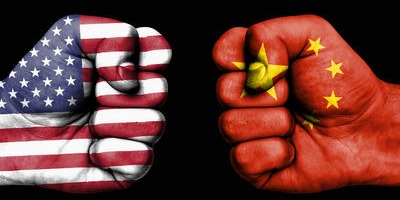
India's key trade partners, the United States and China, just announced a truce in their 18-month long trade war after China agreed to boost the purchase of US goods and services by additional $200 billion in two years. The US, in return, will withdraw the additional tariffs it announced on some Chinese products.
Will it impact India's plans to deepen its engagements with both the US and China? Especially since India was hoping to become one of the sourcing destinations for both the countries when retaliatory tariffs and restrictions on trade make some products more expensive and hence alternate markets become more attractive? The answer is 'no', at least for now.
Firstly, the truce itself is not complete. It is just the beginning. The US decision is partially to put on hold or cancel its planned decision to slap additional tariffs on products like toys or cellphones. Wherever existing tariffs have seen a reduction because of the truce, the 7.5 per cent tariff rate still remains.
Further, a huge set of products are still carrying the high tariffs that were imposed by both countries as part of the trade war. A 25 per cent tariff on $250 billion worth of Chinese goods imported to the US remains and China's retaliatory tariffs on goods worth over $100 billion also remain. Until further negotiations between the two countries lead to a substantial reduction in tariffs across the board, the opportunities India was looking to explore, more or less, remain intact.
Secondly, trade experts are of the firm belief that even if there's a rollback, it is likely to be from 25 per cent to say, 10 per cent and not a complete rollback, which leaves some cushion for India. They also point out that India was not looking at the US-China tussle as just another trade opportunity but to attract investments.
Ajay Sahai, Director General & CEO of the Federation of Indian Export Organisations, says the investment part is already beginning to happen. Chinese companies, whose main market is the US, are now coming to India for investment as they feel even 10 per cent tariff may take away their competitiveness, he adds. "They are looking to invest into the Indian MSMEs (small and medium scale enterprises) as they (Chinese) feel Indian MSMEs have the flexibility to execute such orders if some capital or technology is infused into them," he says.
It seems small industrial towns like Ludhiana and Coimbatore, particularly with their prowess in engineering, are the focal points of such investments. And that's good news.
Do you think so?
- 439
- Leave a comment
Iran Targets US Forces In Iraq With Missiles
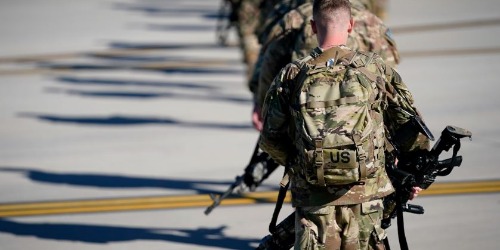
Iran launched missiles at US-led forces in Iraq on Wednesday in retaliation for the U.S. drone strike on an Iranian commander whose killing last week stoked fears of a new Middle East war.
Iranian state television said Iran had fired 15 missiles at U.S. targets in Iraq early on Wednesday.
The US military said at least two Iraqi facilities hosting U.S.-led coalition personnel were targeted at about 1:30 a.m. Iraq time (2230 GMT on Tuesday). Iraq said 22 missiles were fired.
Iranian officials said Tehran did not want a war and its strikes "concluded" its response to Friday's killing of Qassem Soleimani, a powerful general whose burial in Iran after days of mourning was completed around the same time as Iran's missile launches. Iranian state television showed mourners celebrating the attack.
U.S. President Donald Trump said in a tweet that an assessment of casualties and damage from the strikes was under way and that he would make a statement on Wednesday morning.
"All is well!" Trump, who visited one of the targeted sites in Iraq, Ain al-Asad air base, in December 2018, said on Twitter.
One source said early indications were of no U.S. casualties, while other U.S. officials declined to comment.
Iranian state television said 80 "American terrorists" had been killed and U.S. helicopters and military equipment damaged. It did not provide evidence of how it obtained that information.
Germany, Denmark and Norway said none of their troops in Iraq were killed or injured. Iraq also said there were no casualties in its forces.
Iran, which has long said U.S. forces should leave the Middle East, told Washington after the attacks to withdraw its troops to prevent more deaths and warned U.S. allies including Israel not to allow attacks from their territories.
Iranian television reported an official in Supreme Leader Ali Khameni's office as saying the missile attacks were the "weakest" of several retaliation scenarios. It quoted another source saying Iran had lined up 100 other potential targets.
Iranian President Hassan Rouhani was due to speak later on Wednesday, state television reported.
Pentagon spokesman Jonathan Hoffman said the bases targeted were al-Asad air base and another facility in Erbil, Iraq.
"As we evaluate the situation and our response, we will take all necessary measures to protect and defend U.S. personnel, partners, and allies in the region," Hoffman said.
Hours earlier on Tuesday, U.S. Defense Secretary Mark Esper said the United States should anticipate a response from Iran for the killing of Soleimani, commander of Iran's elite Quds Force, a unit of the Revolutionary Guards.
"I think we should expect that they will retaliate in some way, shape or form," he told a briefing at the Pentagon.
Iranian Foreign Minister Mohammad Javad Zarif said Iran "took & concluded proportionate measures in self-defense under Article 51 of the U.N. Charter".
"We do not seek escalation or war, but will defend ourselves against any aggression," he wrote in a post on Twitter.
If the U.S. military was spared casualties and Iran takes no further measures to retaliate for Soleimani's killing, there might be an opportunity for Washington and Tehran to seek a way out to their increasingly violent confrontation.
Asian stock markets, which had been roiled by the attack, pared some of their losses after the tweets from Trump and Zarif. U.S. crude prices also retreated after surging almost 5% on worries any conflict could cut oil supplies.
The oil minister of the United Arab Emirates, a member of the Organization of the Petroleum Exporting Countries, said the latest events should not be exaggerated. He said there was no global crude shortage and OPEC would respond to any need.
AIRLINES BANNED FROM AIRSPACE
The U.S. Federal Aviation Administration said it would ban U.S. airlines from operating in the airspace over Iraq, Iran, the Gulf and the Gulf of Oman. Other airlines also issued warnings about flying over the region.
In an apparently unrelated incident, a Ukrainian airliner with more than 160 people on board crashed in Iran on Wednesday, killing all those on board, due to technical problems soon after taking off from Tehran's Imam Khomeini airport.
Democrats in the U.S. Congress and some of the party's presidential contenders warned about the escalating conflict.
"We must ensure the safety of our service members, including ending needless provocations from the Administration and demanding that Iran cease its violence. America & world cannot afford war," U.S. House of Representatives Speaker Nancy Pelosi said on Twitter.
Soleimani, a pivotal figure in orchestrating Iran's campaign to drive U.S. forces out of Iraq, was responsible for building up its network of proxy armies across the Middle East.
He was a national hero to many Iranians but viewed as a villain by Western governments opposed to Iran's arc of influence running across the Levant and into the Gulf region.
U.S. officials have said Soleimani was killed because of intelligence indicating forces under his command planned attacks on U.S. targets in the region. But they have not provided evidence.
Before Soleimani was buried his body was taken on a tour of cities in Iraq and Iran, drawing huge crowds, often chanting "Death to America". His burial on Tuesday was delayed after a stampede that killed at least 56 people, Fars news agency reported.
An hour after the Iranian missile attack, its state television showed footage of Soleimani's burial, where a gathering of hundreds of people started chanting "God is greatest" when the strikes were announced over loudspeakers.
"His revenge was taken and now he can rest in peace," the television said.
The missiles were launched on Wednesday at the same time of the day that he was killed on Friday. He was buried in the "martyrs section" of a cemetery in his hometown of Kerman.
More than 5,000 U.S. troops remain in Iraq along with other foreign forces as part of a coalition that has trained and backed Iraqi forces against the threat of Islamic State militants.
Do you think US and Iran going to have a war?
Pakistan to be blacklisted? FATF to review Imran Khan's measures on tackling terror funding
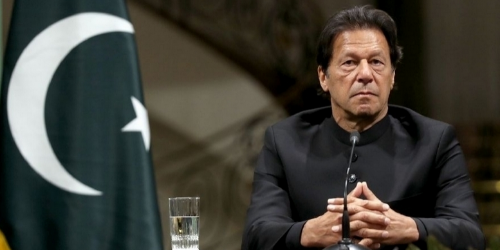
Pakistan will present its compliance report to the Financial Action Task Force (FATF) in Paris on Monday. Pakistan was included on the 'grey list' compiled by FATF and has been under tremendous pressure to stop financing militant groups taking refuge in the country. However, reports suggest that the country's efforts to tackle terror-financing and money laundering might fall short in its compliance with the global body's mandate. The compliance report at the FATF meeting will be presented by Pakistan economic affairs minister Hammad Azhar.
The FATF meetings are being held in Paris from October 13 to October 18. It will scrutinise if Pakistan should be blacklisted, which could have enormous economic impact on the country including a $6-billion bailout package programme by the International Monetary Fund (IMF).
On Saturday, Alice Wells, acting assistant secretary for the Bureau of South and Central Asian Affairs said, "As Imran Khan has said, Pakistan, for its own future, must prevent militant groups from operating on its soil."
However, it must be mentioned that all eyes will be on Beijing's role at the FATF plenary meeting. China holds the current FATF presidency. China's Xiangmin Liu is the current FATF president. China's role will be crucial, especially after President Xi Jinping's recent visit to India, where the leader and Prime Minister Narendra Modi spoke at length about working together.
Pakistan was placed on the grey list last year. In June, FATF had given Pakistan till October to improve its counterterrorist financing operations in accordance with the agreed plan. It is at the same meet that Pakistan secured three votes needed to avoid inclusion in a blacklist. China, Turkey and Malaysia voted in favour of Pakistan.
However, the Asia Pacific Group on Money Laundering (APG) that monitors compliance found that the country has failed to deliver on most components of a 27-point action plan.
A recent report by the APG also stated the same. The APG had 10 parameters for 'Effectiveness and Technical Compliance Ratings' and 40 for 'Technical Compliance Ratings'. Of the 10 parameters on effectiveness, Pakistan was found 'low' in nine areas and 'moderate' in one. Of the 40 technical compliance, Pakistan was found 'compliant' in only one, 'partially compliant' in 26, 'largely compliant' in 9 and 'non-compliant' in 4.
The report is among the materials that the FATF plenary will consider before deciding to retain Pakistan in the grey list or demote it to the black list.
Do you think Pakistan should be Blacklisted?
China had expressed its opposition to India's move to create a separate Union Territory of Ladakh
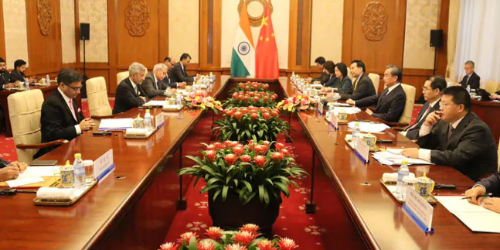
Foreign Minister S Jaishankar today sent out a crucial message to China, which recently expressed its strong disapproval of the government's Kashmir move, especially the creation of a separate Union Territory of Ladakh. India had brushed away China's remarks, saying all the changes made were "internal matters". Today, at a meeting with his Chinese counterpart Wang Yi in Beijing, Mr Jaishankar said, "The two nations should ensure that it was important that differences between us, if any, should not become disputes".
India-China relationship, Mr Jaishankar was quoted as saying by news agency ANI, has a "unique place" in global politics. "Two years ago, our leaders recognised that reality and reached a consensus in Astana that at a time of global uncertainty India-China relationship should be a factor of stability," he said.
Last week, after the government's move to end the special status of Jammu and Kashmir and bifurcate it into the union territories of Jammu and Kashmir and Ladakh, China voiced its "serious concern".
Beijing asked India and Pakistan to exercise restraint, and said the two nations should avoid actions that "unilaterally" change the status quo and "exacerbate tensions".
China also expressed its opposition to India's move to create a separate Union Territory of Ladakh.
India said the decisions on Kashmir were "an internal matter concerning the territory of India".
"India does not comment on the internal affairs of other countries and similarly expects other countries to do likewise," the foreign ministry said.
Pointing to Mr Jaishankar's tenure as India's ambassador to China, Chinese Foreign Affairs Minister Wang Yi said for many years, he has made "positive and active contribution to China-India relations".
Is it the right decision to separate Ladakh from J&K and to make these as separate territories?
Pakistan will not open airspace until India withdraws fighter jets from IAF forward airbases
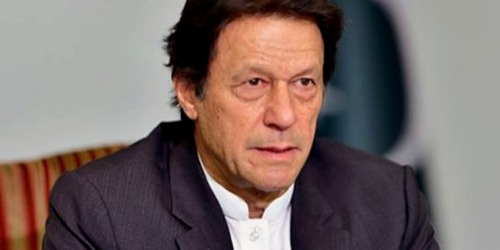
Pakistan has told India that it will not open its airspace for commercial flights until New Delhi removes its fighter jets from forward IAF airbases, Pakistan's Aviation Secretary Shahrukh Nusrat has informed a Parliamentary committee.
Pakistan fully closed its airspace on February 26 after the Indian Air Force (IAF) fighter jets struck a Jaish-e-Mohammed (JeM) terrorist training camp in Balakot following the Pulwama terror attack in Kashmir.
Aviation Secretary Nusrat, who is also the Director General of the Civil Aviation Authority (CAA), on Thursday informed the Senate Standing Committee on Aviation that his department has intimated Indian officials that Pakistani airspace would remain unavailable for use by India until the country withdraws its fighter jets from forward positions, Dawn News reported.
"The Indian government approached asking us to open the airspace. We conveyed our concerns that first India must withdraw its fighter planes placed forward," Nusrat told the committee.
This is probably the first time a senior Pakistani official has publicly stated Islamabad's precondition for reopening its airspace after the Balakot air strikes.
He further apprised the committee that Indian officials have contacted Pakistan requesting it to lift the airspace restrictions.
"However, Indian officials have been told that Indian airbases are still laden with fighter jets and Pakistan will not allow resumption of flight operations from India until their removal," said Nusrat.
Last month, the CAA had extended the airspace ban till July 12. It had earlier extended the airspace restriction until June 30.
After the restrictions, all the passenger flights are being diverted to alternative routes by India, The Express Tribune reported.
The CAA official also contested India's claim that Delhi had opened its airspace for Pakistan, the report said.
"Pakistani flights from Thailand have not been restored since the closure of the Indian airspace. Pakistan International Airlines (PIA) flights for Malaysia also remain suspended," the CAA DG informed the committee.
Last month, Pakistan gave special permission to Prime Minister Narendra Modi's VVIP flight to use its airspace for his official trip to attend the Shanghai Cooperation Organisation Summit in Bishkek, the capital of Kyrgyzstan.
However Prime Minister Modi's VVIP aircraft avoided flying over Pakistan. Earlier, Pakistan had allowed India's former External Affairs Minister Sushma Swaraj to fly directly though Pakistani airspace to participate in the meeting of SCO foreign ministers in Bishkek on May 21.
India aviation industry has suffered huge losses due to the airspace ban by Pakistan.
On Thursday, Civil Aviation Minister Hardeep Singh Puri told Parliament that due to the closure of Pakistan airspace, Air India had to spend an extra Rs 430 crore on longer routes.



